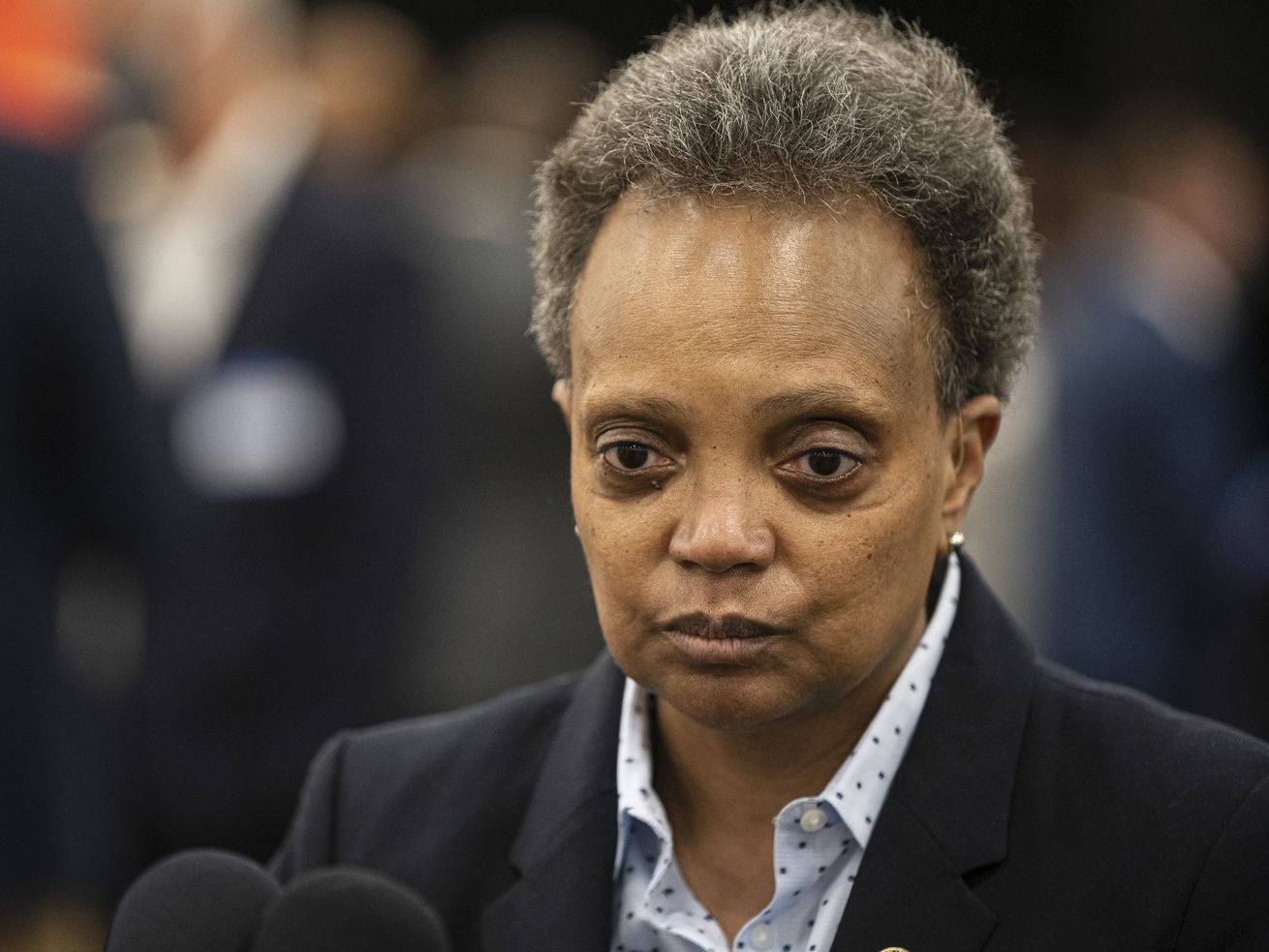
The mayor argued that two pending proposals for civilian police review due to be voted on by the City Council’s Committee on Public Safety had “significant holes in them.”
Mayor Lori Lightfoot has been accused of abandoning the police reform she championed — by repeatedly derailing a City Council showdown on the volatile issue of civilian police review.
On Thursday, the mayor offered her most detailed explanation yet about why she has stalled those rival proposals.
“This is going to be one of most important policy decisions that is made by the city of Chicago in decades. … Really recalibrating the relationship between the people and the police,” Lightfoot said during a virtual panel on criminal justice reform sponsored by the University of California, Berkeley.
“We’ve got to get this right … so we are actually setting these proposals up for success and not failure.”
Lightfoot argued that two pending proposals for civilian police review awaiting votes by the Council’s Committee on Public Safety had “significant holes in them.”
Critical questions left unanswered, she said, include the “structure of governance” and “issues regarding policy and who makes those decisions?”
“Call me silly but I believe that public policy, when it goes to a vote and is gonna become the law of the land, can’t be with a lot of the key decisions T.B.D. — to be decided later. They need to be decided now. They need to be debated in a public forum and not have a check-the-box circumstance where we say we’re doing something but we leave much of the hard work to be decided at some later time,” the mayor said.
Lightfoot did not explain why she has insisted on retaining power to break disputes when she and the commission disagree on proposed changes to police policy. Nor did she say why she has objected to empowering the civilian board to take an advisory vote of no-confidence in the police superintendent — a vote that would trigger the superintendent’s firing if two-thirds of the Council then votes for removal.
She said only that civilian police review must include a “wide variety of community voices” and be done “in harmony with the Police Department” because “the police department as a failure means our city fails. It means our neighborhoods aren’t safe.”
“Harder to do in practice than in theory,” she said.
Last month, Lightfoot pressured Public Safety Committee Chairman Chris Taliaferro (19th) to postpone a showdown vote on civilian police review to give her time to introduce a substitute ordinance.
The following day, two groups that have long pushed different versions of civilian police review turned up the heat on the mayor by saying they now are working together with support from 40 of Chicago’s 50 aldermen.
That means Lightfoot is headed for a showdown vote she could lose.
As a former police board president who co-chaired the Task Force on Police Accountability, Lightfoot demanded that then-Mayor Rahm Emanuel empower a civilian oversight board to fire the police superintendent and establish police policy. She promised to deliver that commission within her first 100 days in office.
Now approaching mid-term, she’s still no closer to delivering on one of her most important campaign promises.
On Thursday, the mayor insisted she has not wavered.
“We have to have civilian oversight of the police because, if we do not, then the core mission of the police to serve and protect communities will be done without the legitimacy that’s gonna be necessary for them to be successful in that mission … to keep everybody safe — regardless of ZIP code, regardless of neighborhood,” Lightfoot said.
As for the Chicago Police Department’s painfully slow compliance with a federal consent decree, Lightfoot argued it’s one thing to “check the boxes” on court mandates, but quite another to change the “hearts and minds and the culture” of an entrenched institution.
“Very difficult to do from the outside in. That is one of the biggest challenges of consent decrees. You’ve got a group of people from the outside that are trying impose cultural change on an institution that is comfortable with its culture,” the mayor said.
“How do you get buy in? How do you disrupt that culture? How do you change the status quo? That should be the work of consent decrees. And unfortunately, the way that many of them have been constructed over the years, they don’t seem to recognize that fundamental conundrum that is really the key to making a difference.”
